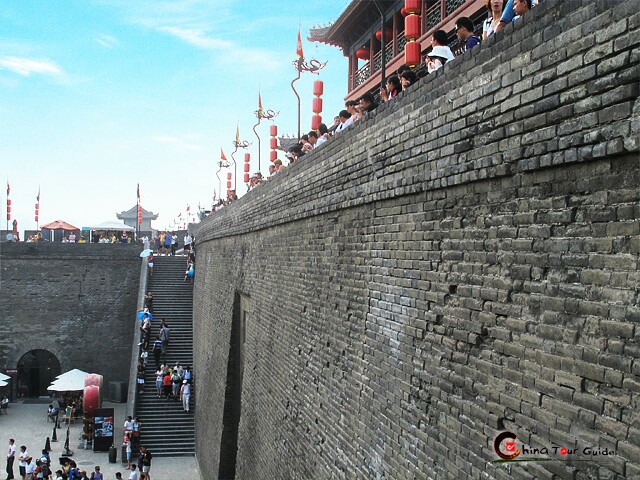20 Good Tips For Deciding On China Tour Websites
20 Good Tips For Deciding On China Tour Websites
Blog Article
Top 10 Tips For Bargaining Etiquette While Shopping In China
1. Start Low, but Be RespectfulTip You can offer 50-70 percent less than the quoted price and negotiate upwards. Show your seriousness by being assertive, yet respectful.
Pro: You can establish your position without causing offence to the seller.
Con: A low starting price can be a source of frustration for sellers especially for products with a lower margin.
2. Find out what the market value is
TIP: Study the cost of the item beforehand to ensure you don't overpay.
Pro: You will not be deceived You'll be confident in the process of negotiating.
Cons: It can be time-consuming to search particularly for handmade or unique items.
3. Show Genuine Interest
Tips: Sellers might be more willing than normal to bargain with you, if they think you're truly looking to purchase.
Pro: It helps build trust and improves your chances of receiving the best price.
A frenzied attitude may signal a willingness for you to pay more, which could compromise your standing.
4. The best way to walk Away is strategically
Tip: If it isn't possible to see a price reduction then take your time and walk away. You may get a message from the seller with a higher offer.
Pro: A powerful strategy to get the best possible cost.
Con: Can be counterproductive when a seller doesn't desire to cut their price. This is particularly true for items that are extremely sought-after.
5. Learn Basic Mandarin Phrases
Tip: Phrases like "Tai gui le!" (Too expensive!) It's expensive! put in the you put in.
Pro: Makes the negotiations more personal, and usually softens the seller's stance.
Cons: The use of limited phrases may not be useful in more complex negotiations.
6. Be calm and patient
Negotiations can be slow. Be patient and avoid appearing desperate.
Pro Sellers reward calm and consistent buyers with higher-priced deals.
Cons: Takes time and energy to do especially in busy markets.
7. Bring Cash
You may find that sellers will lower the cost if you pay cash instead of using digital payment methods.
Cash Offers: Small businesses typically accept cash offers to obtain discounts.
Con: Carrying money in places that are crowded is risky because of pickpockets.
8. Group Discounts
Tips: If you are buying several items, you may ask for a discounted price.
Pro: Increases your ability of bargaining and helps you get a good deal.
Con: Purchases may be more expensive than what you require and may not meet your needs.
9. Do not be afraid to say No
Tip: Politely decline, and then walk away if find that the seller will not lower the price.
Pros: Prevents buyers from regrets and makes it easier to stay within your budget.
Pro: Miss out on something that you truly would like to have.
10. Know when to avoid bargaining
TIP: Bargaining isn't appropriate in supermarkets, department stores or in high-end boutiques.
Pro: Prevents embarrassment and respects the cultural differences.
Pros: Your chances of negotiating are limited in certain settings.
Pros of Bargaining in China
Saves Money: Negotiating can dramatically cut the price of products.
Cultural Experience: Participating in bargaining provides insight into local traditions and customs.
Personal Interaction: Builds connections with local sellers.
The downsides of bartering with Chinese People
Time-consuming: Haggling can be long, especially for those who aren't familiar with the process.
Without basic Mandarin the communication could be difficult.
The process of negotiation can be stressful.
With these suggestions, you'll be able to navigate Chinese markets with confidence, and also enjoy the art of haggling! Have a look at the recommended explore the wonders of this attraction for site tips including honey lake country club, the top 4 movies about kung fu and chinese culture, entertainment in hong kong, naked marriage in china the most fashionable wedding style for the 1980s, hua diao the most famous shaoxing yellow wine, wuzhi mountain wuzhi shan five finger mountain, chinese knot which has a long history and a symbolic meaning, guanlin temple, eating in dunhuang, eating in guilin and more.
Top 10 Tips For Visiting Temples During Different Seasons In China
1. Visit in Off-Season(Autumn/Winter).Tip. Consider visiting famous Chinese temples in cooler weather (usually between November and February). There are fewer tourists and the temperature is cooler.
Pro: It is quieter and gives an ambiance that is more peaceful.
Cons: The weather could be colder, which could make temple visits outdoors less comfortable.
2. Be prepared for weather extremes
Tip - Temperatures can change dramatically during different seasons. Winters may be bitterly cold, but summer temperatures are usually hot. Make sure you check the forecast and pack according to the forecast.
Pros: Your stay is going to be enjoyable and relaxing because you'll be ready to face any weather.
Con: Packing for the extremes of the seasons isn't easy, particularly if your travel is light.
3. Visits during the spring and Summer to See Vibrant Flora
Tip: If you visit temples during the summer and spring it is possible to enjoy stunning gardens with blooming flowers and lush landscapes.
Beautiful scenery enhances the experience of visiting temple grounds.
Con: Summer can be very hot and packed, especially on national holidays.
4. Take into consideration festivals and special events.
Tips: Plan your visit during traditional celebrations like Chinese New Year (January/February) or the Mid-Autumn Festival (September). This is the best time to visit a temple because it has particular rituals and celebrations.
Pro Temples are awash with tradition and lively events. They offer an unforgettable experience.
Con: During the festival season temples are often crowded and prices for accommodation may increase.
5. Beware of Peak Holiday Seasons
Avoid visiting during peak tourist season (e.g. Chinese New Year or Golden Week in October) as temples can be crowded both with local and international tourists.
Pro: Enjoy a peaceful visit without the crowds.
Con: You might be missing out on some of the festival's special activities during peak hours.
6. Look for Temple Closures in Winter.
You should check ahead to find out whether the temples you intend on visiting are closed or open during winter. This is especially important for those located in remoter regions or areas. Always check before you go.
Cons: You won't spend time, and you will be able to plan your other events.
Con: A lot of temples are closed or reduced in hours due to repairs. This could result in disappointment.
7. Early Morning Visits in Summer
Tips: If you are visiting during the summer, get there early in the morning to avoid the intense midday heat. Temples often open their doors early in the morning. The air is quieter and there are fewer visitors.
The cooler temperatures and lack of crowds create a more peaceful experience.
Con: It demands an early wake-up that is not ideal for everyone.
8. Prepare for rain during the summer months.
The summer season can bring a lot of rains, particularly in the southern part of China. If visiting during this season bring an umbrella or rain gear to ensure you are comfortable.
You can still appreciate the magnificence of the temple even in the event of rain.
Cons: Rain can cause outdoor activities to be difficult and cause temple grounds become slippery.
9. In autumn, you can visit temples in mountainous regions.
Tips: Visit temples in mountainous areas such as Mount Wutai (or Mount Emei) in the autumn. The temperature is cool and the autumn leaves make an incredible scene.
Pro: The views and cooler temperatures make outdoor activities and hiking more enjoyable.
Con: Temples that are popular in the mountains may attract crowds during weekends and on holidays.
10. Be aware of the Lunar Calendar when planning specific occasions
Tip A lot of Chinese temples follow the lunar calendar and many rituals or events are tied to lunar dates. Study the calendar in order to attend important events such as the Lantern Festival, Buddha's Birthday or other temple celebrations.
Pro: A unique experience in culture and deeper understanding into local rituals of the spiritual.
Cons: It could require extra time to plan and research according to the lunar calendar and events may not align with your travel dates.
Benefits of visiting Chinese Temples Seasonally
Less crowds on trips during off-season are more peaceful and reflective.
Cultural Events: Festivals provide a deeper immersion into local religious and cultural traditions.
Beautiful Scenic Beauty: A visit in spring or autumn can offer stunning landscapes and vibrant gardens that surround temples.
Tempel exploration is more pleasant in the autumn and winter months.
Pros and Cons of Seasonal Chinese Temple Visits
Unpredictable Weather: Winter can be cold, while summer could be hot, which could impact your well-being.
Temple Closures: Some temples are restricted in hours of operation or are shut in extreme weather conditions, or when it is not in the season.
Afraid of Crowds at Festivals: Popular festivals and holidays can bring large crowds, making it harder to fully experience the temple's peaceful atmosphere.
Special Events: Certain celebrations or events during the season may not occur in the right time frame.
You can make your trip to China's temples more memorable and enjoyable by picking the most appropriate time and plan ahead. Understanding the changing seasons will assist you in getting the most enjoyment from your trip, whether seek peace and quiet or celebrations. Follow the best plan your visit to this spot for website examples including popular beijing night markets, south luogu laneone of the oldest neighborhoods in beijing, xiang cuisine.html, chinese festival cuisine, shopping in macau, eating in changchun, jinan transportation, shopping in dunhuang, eating in guilin, shanghai portman acrobatic show one of the best acrobatic shows in shanghai and more.